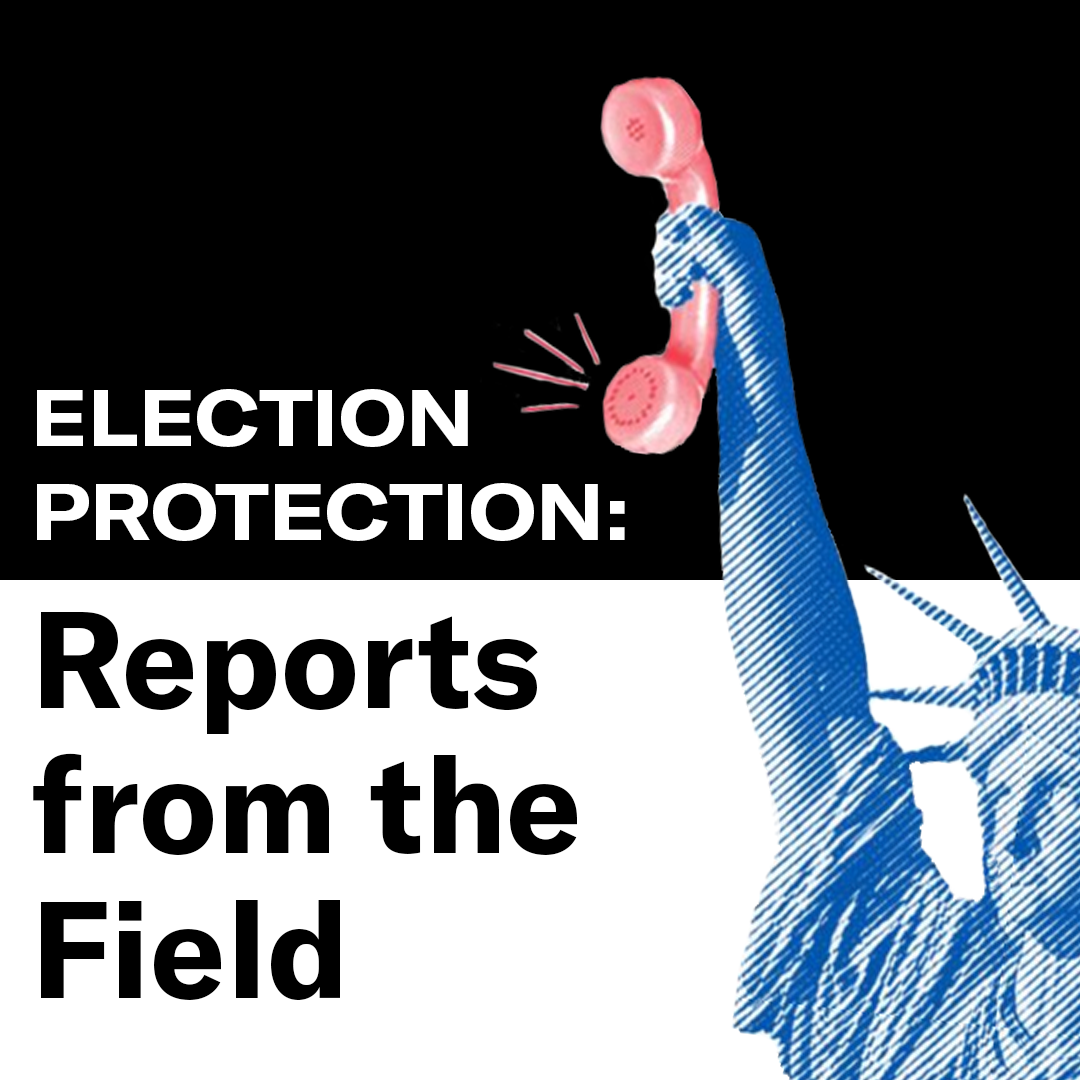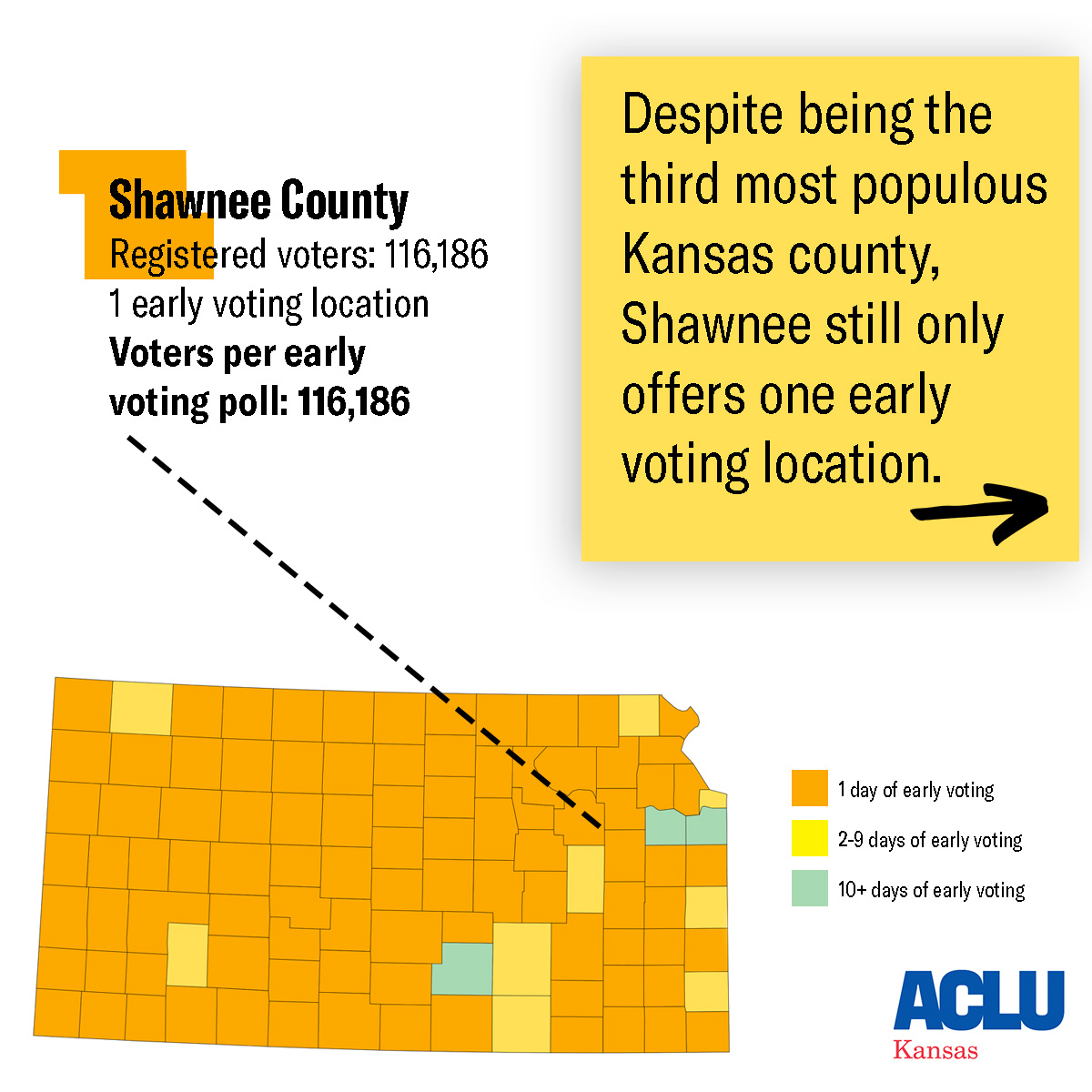This past primary election, we had volunteers at 86 polling locations in the state. Here are the Reports From the Field: Election Protection:
Election Day Overview:
- We had an impressive turnout, with 65 poll monitors completing 106 shifts across 86 polling locations in 13 different counties. These numbers are fantastic—let’s aim to double our efforts for November!
Primary Election Observations: Overall, our election officials ran a smooth primary, with over 91% of observed locations meeting key criteria:
- Clear and visible signage indicating polling locations
- Accessible entrances
- Sufficient parking
- Wait times under 15 minutes, with no lines
- No presence of police, ICE, or other security personnel
- No electioneering
However, there are a few areas where we can improve:
Curbside Access:
- 41% (35 locations) had no visible signage for curbside access, while 55% (28 locations) did.
- 18 locations had both signage and a button available.
- 1 location featured signage and a wireless remote camera.
Handicapped Accessibility:
- Only 74 out of 86 polling locations were wheelchair accessible.
- Some locations had issues with:
- Lack of automatic doors
- Inadequate ramp grading
- Unmarked ADA-accessible parking
- Gravel parking lots
Language Access:
- 62 polling sites had no language accessibility.
- 5 locations provided voter instructions in multiple languages.
- 3 electronic machines offered language selection options.
866 OUR VOTE Hotline:
We received 13 calls on Election Day, mostly about voting instructions and party affiliation changes.
More serious concerns included:
- Missing mail-in ballots
- Ballots issued for the wrong political party
- Potential police intimidation at one location
- Possible electioneering by a candidate at another location
Thank you again for your commitment to election protection. Let’s continue to build on this success and strive for even better outcomes in November! And, if you’re looking to stay involved with the ACLU’s work year-round, please sign up for one of our new member orientation Zoom’s here.
Date
Tuesday, August 27, 2024 - 1:30pm
Featured image
Show featured image
Hide banner image
Show related content
Tweet Text
[node:title]
Type
Menu parent dynamic listing
Show PDF in viewer on page
Style
Standard with sidebar
Show list numbers
Author
Allie Utley — Field Organizer
Your ability to vote and make your voice heard can vary severely based on where you live. Many decisions affecting voter access are made at the county level, meaning two neighbors on opposite sides of a county line could have dramatically different options on how to vote.
One example of this is Shawnee County.
Shawnee is Kansas's third most populated county, yet only offers one early voting location for voters. For reference, no other top-5 populated city offers fewer than 4; Johnson and Sedgwick offer 18 and 19 locations respectively. By only offering one early polling location, county officials are making it dramatically harder to early vote in Shawnee County.
You can see how much harder it is to vote in Shawnee when you compare it with Wyandotte, which is roughly the same population. Wyandotte offers 5 locations for early, in-person voting; this means it has one poll for every 18,321 people. By contrast, Shawnee has one early in-person voting location, which has to serve all 116,186 registered voters.
The harm from this decision becomes more striking when you look at less populated counties that offer more early voting locations.
Butler County has fewer than half the number of registered voters as Shawnee County, yet offered 2 polling locations in 2022; this means they have a polling location per 23,924 registered voters, making it nearly 5x more accessible by this metric than Shawnee. More dramatically Brown County has only 6,546, yet offers 4 voting locations, making it 71x more accessible than Shawnee County based on early voting locations per registered voter. (Brown County is also roughly the same area as Shawnee, meaning the average distance to the poll is much lower as well).
Finally, Shawnee falls short in the time they offer for early voting. They offer 11 days of early voting, fewer than many smaller counties and about half of the 20 allowed by law. More dramatic is the number of early in-person voting hours offered outside of business hours. Shawnee only offers 20 hours, whereas across the county line in Douglas voters have nearly double that at 36 hours. Wyandotte takes this further with 48; Johnson County laps Shawnee with 180 non-business early vote hours. Even the much smaller Crawford County offers 54 hours of early voting outside of business hours.
This is much more than mere data. Every extra polling location means an easier process for real voters to vote early. Every extra day of early voting means more opportunities to vote, which can also lead to a faster process, especially by reducing lines on Election Day. And every hour offered outside of 8-5 work day could be the difference between someone who works casting a vote or not.
Our democracy is strongest when every eligible voter makes their voice heard. In Kansas, county election officials make decisions that have the biggest impact on voter access. Though this has the downside of access varying across counties, the upside is that the decision-makers are local, and every Kansan can work within their own community to make it easier to vote for themselves and their neighbors.
Date
Friday, July 26, 2024 - 12:15pm
Featured image
Show featured image
Hide banner image
Show related content
Tweet Text
[node:title]
Type
Menu parent dynamic listing
Show PDF in viewer on page
Style
Standard with sidebar
Show list numbers
Author
Jesse Kielman
Voter intimidation has tainted elections since the inception of the American Constitution, long before Black people, Indigenous people, people of color, and white women were granted the right to vote. These marginalized groups, along with poor and working-class white men, fought to secure the rights enshrined in the 5th, 19th, 24th, and 26th Amendments, shaping the inclusive democracy we strive for today. However, the ongoing work for a fair voting process has been marred by persistent violence and intimidation at the polls.
Historically, this intimidation has ranged from verbal threats to outright physical harm. The Election Massacre of 1874 saw members of the White League ambush black Republicans in Alabama, resulting in about 70 deaths, 70 injuries, and 1,000 fleeing the scene. Voter intimidation has evolved over time, exemplified by the 1981 Republican National Committee's "Ballot Security Task Force." This group, dressed in arm bands and carrying firearms, approached black and Latino voters, asking for registration cards and sometimes chasing them away. This showcases the persistent and changing nature of voter intimidation in American democracy.
Today, we see voter suppression in a new light. Most Kansans can remember the Dodge City polling place debacle of 2018, where their Election Clerk moved the county’s only polling location a mile outside of the city. Others may remember the Election Clerk in Hays incorrectly telling followers in a 2020 Facebook post that a provisional ballot would not count “[if] you are a convicted felon.” Anyone who has a felony conviction can re-register to vote and cast a ballot once they have completed the terms of their sentence.
Now, as we approach the primary vote next month and the general election in less than four months, the ACLU of Kansas is gearing up to combat these types of voter intimidation, suppression, and misinformation at the source: your local polling place.
In collaboration with 866-OUR-VOTE, we are preparing to launch Kansas's only statewide, non-partisan election protection program. We train everyday citizens to become voting champions, ready to safeguard democracy in their own counties. With multiple options for volunteers to make their volunteering work for their unique schedule, there is an option for everyone to plug into our work:
- Poll Monitor: These folks have three hour shifts on Election Day to observe polling location(s), help us collect data about polling locations, and assist voters in person. We will work with you to find a shift and location that works with your schedule on Election Day!
- Floating Poll Monitor: This position helps collect data about polling locations and place and pick up 866-Our-Vote yard signs. This is a great option if you want to help, but can't commit to the time to monitor a polling location.
- County Captain: If you’re wanting to level up and volunteer as a leader on Election Day to be the point person for other volunteers in your county, this is your opportunity! Help us troubleshoot with poll monitors, help distribute supplies, and support our Poll Monitor training program.
As we approach the upcoming elections, it is essential to remain vigilant and take proactive measures against voter intimidation and suppression. Reflecting on the historical struggles of marginalized communities in the democratic process, we must continue to fight for the justice that their ancestors sought. By training citizens to serve as poll monitors, floating poll monitors, and county captains, we are establishing a robust network of election protection across the state. Together, we can uphold the integrity of our democratic process, ensuring that every vote counts and every voice is heard.
Join us in this critical effort to safeguard our democracy and guarantee a fair election for all by signing up at https://bit.ly/ks-ep2024
Date
Tuesday, July 23, 2024 - 1:45pm
Featured image
Show featured image
Hide banner image
Show related content
Tweet Text
[node:title]
Type
Menu parent dynamic listing
Show PDF in viewer on page
Style
Standard with sidebar
Show list numbers
Author
Allie Utley — Field Organizer
Pages


